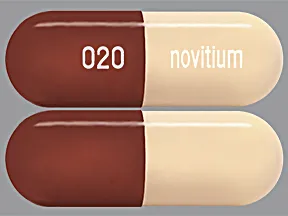The next most essential thing you can do is build and keep a strong relationship with your kid's instructors and with the school. If your kid has actually been identified with a psychological or behavioral health issue, bring it to the school's attention and ensure they are involved in your treatment plan.
If the school refuses to work with you or isn't able to use anything in the way of help, it may be time to try to find another school that better matches your kid's needs. By bringing your pediatrician and your kid's teachers together, you can develop an extensive assistance system for your kid.
Though the road might be hard, your kid depends on you for love and support so do whatever you can to provide your kid what they need to succeed and grow.
A U.S. Cosmetic surgeon General report indicates that a person in five children and teenagers will face a considerable mental health condition throughout their school years. Mental health disorders affecting children and adolescents can vary from attention deficit disorder (ADHD) to autism, depression, consuming conditions, schizophrenia, and others. Trainees suffering from these conditions deal with considerable barriers to learning and are less most likely to graduate from high school.
What Does How Does The Muscular System Affect Your Mental Health Do?
As leaders work to fulfill these obligations, they deal with an array of challenges related to psychological health: Schools have actually historically utilized their resources to utilize a significant number of student support professionals - how can mental health affect physical health. These school staff members have been the core around which extensive school-based programs have been developed and carried out.
By the 201415 school year, there was one school counselor for every single 482 trainees. The recommended ratio from the American School Therapy Association is one school therapist for every 250 trainees. Data from the U.S. Department of Education Office for Civil Addiction Treatment Facility liberty suggests that a person in 5 high schools do not have a school counselor.
Within a district, various schools need to share school psychologists, school social workers, school nurses, and other specific assistance personnel. This increases the caseload of these psychological health experts and limits access to their services for students in requirement of support and support. While the People with Disabilities Act (CONCEPT) and the Elementary and Secondary Education Act (ESEA) consist of programs and initiatives to resolve detailed assistance services in schools, since FY 2009 the financing for these programs, consisting of the Safe and Drug-Free Schools and Communities Act (SDFSCA) State and Regional Grants Program, has actually been seriously cut, if not removed.
In FY 2009, the federal programs supporting trainees' mental health and health exceeded $800 million; nevertheless, in FY 2017, Congress was investing only $400 million to support Title IV and the SSAE grant program, less than 25% of its authorized level of $1.65 billion under the Every Student Succeeds Act (ESSA).

The Only Guide to How Can Poor Mental Health Affect Your Physical Health
For unfortunate historical and cultural reasons, mental illness has persistently been stigmatized in our society. This preconception appears by bias, suspect, stereotyping, worry, shame, anger, and/or avoidance. Attending to psychosocial and psychological health issues in schools is usually not assigned a high top priority, other than when a high-visibility occasion happens, such as a shooting on campus, a trainee suicide, or an increase in bullying.
According to the Union to Assistance Grieving Trainees, death by suicide is the third leading cause of death in children ages 1014 and the 2nd leading cause of death in children ages 1519. Near one in five high school trainees has thought about suicide, and 2 to 6 percent of kids try suicide.
Principals and other school personnel should likewise concentrate on preventative procedures for causes that are linked to suicide, such as bullying. These obstacles underscore the need for extensive psychological health support services and prevention programs to construct the capacity of schools as they assist each trainee reach his or her maximum potential.
As a 2017 research review in the Harvard Review of Psychiatry asserted, there is a growing body of evidence that supports the efficiency of psychological https://aethano7zp.doodlekit.com/blog/entry/10622683/how-does-technology-affect-our-mental-health-things-to-know-before-you-get-this health programs in schools and their ability to reach great deals of kids. NASSP thinks, and current research study has verified, that school leadership affects trainee accomplishment (2nd only to direction, especially for at-risk trainees) (how does sleep deprivation affect mental health).
The smart Trick of How Does Mental Health Affect Addiction That Nobody is Talking About
Building Ranks: A Comprehensive Structure for Effective School Leaders includes "health" as a dimension of building culture, stating that school leaders "foster and nurture a deliberate focus on health because healthy students and adults discover and engage proficiently." NASSP believes that for schools to promote a safe knowing environment for all students, including those students that might be struggling with some form of psychological illness, policymakers must offer appropriate levels of access to mental health and counseling services for all trainees who attend our public schools, in order to promote success in school and to address the mental health needs of trainees experiencing some type of diagnosable mental disorder.
NASSP is committed to supporting principals and other school leaders in their work to prevent teen suicide, while likewise offering principals, school leaders, and schools with resources and assistance for attending to teen suicide in the regrettable occasion that it takes place within a school neighborhood. NASSP acknowledges that, in addition to detected mental disorder, today's middle level and high school students typically deal with a myriad of undiagnosed mental health concerns such as tension and anxiety, anxiety, drug and alcohol abuse, consuming disorders, sleep deprivation, disruptive circumstances in your home, and lack of nutrition.

NASSP thinks concentrated efforts at the local, state, and federal levels to secure funding for resources to support and sustain psychological health programs will deal with the concern at hand. Federal and state federal governments should supply monetary assistance to make it possible for regional communities to execute an extensive culturally and linguistically suitable school-based psychological health program that supports and cultivates the health and development of students.
The federal government should offer states and regional communities the capability to integrate federal and state funding from separate companies to attend to mental health and school safety concerns at the regional level. The federal government should fully money the Student Support and Academic Enrichment Grants under Title The original source IV, Part A of the Elementary and Secondary Education Act to help K12 schools provide trainees access to innovative courses and college and career counseling.
Not known Facts About How Does Sleep Deprivation Affect Mental Health
Federal and state policymakers ought to assist schools in recruiting and keeping school counselors, school social workers, school psychologists, and mental health experts to support school-based interventions and the coordination of psychological health and health services. States and local federal governments should facilitate community collaborations amongst families, students, police, education systems, mental health and drug abuse service systems, family-based psychological health service systems, government agencies, healthcare service systems, and other community-based systems.
State and regional policymakers ought to supply financing to support the hiring of mental health professionals to serve students and schools. State and regional policymakers should offer financing to increase professional advancement chances for school leaders and other school personnel. State and local policymakers ought to provide funding for comprehensive school-based health centers, especially those that provide mental health services.